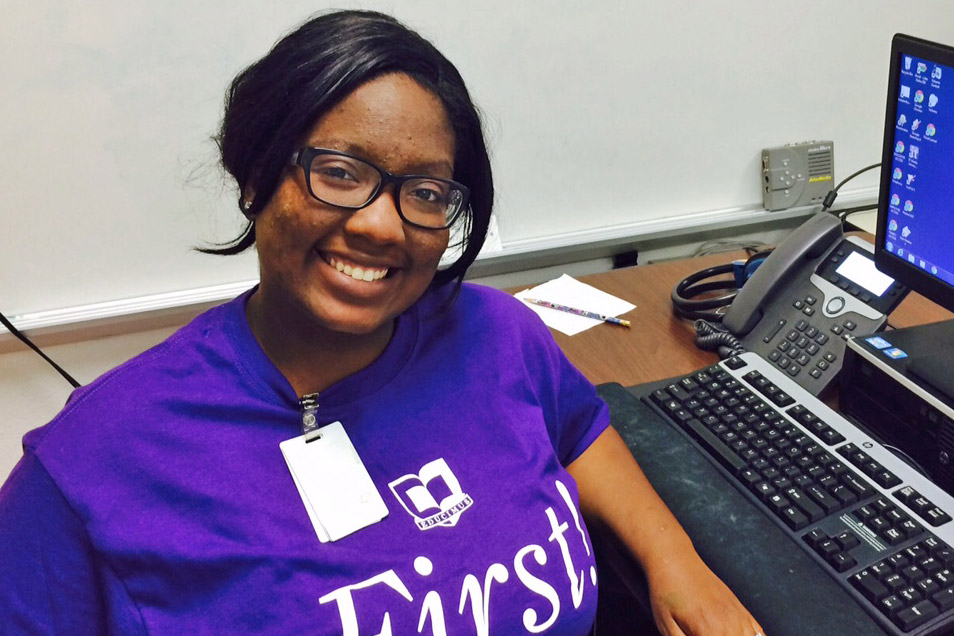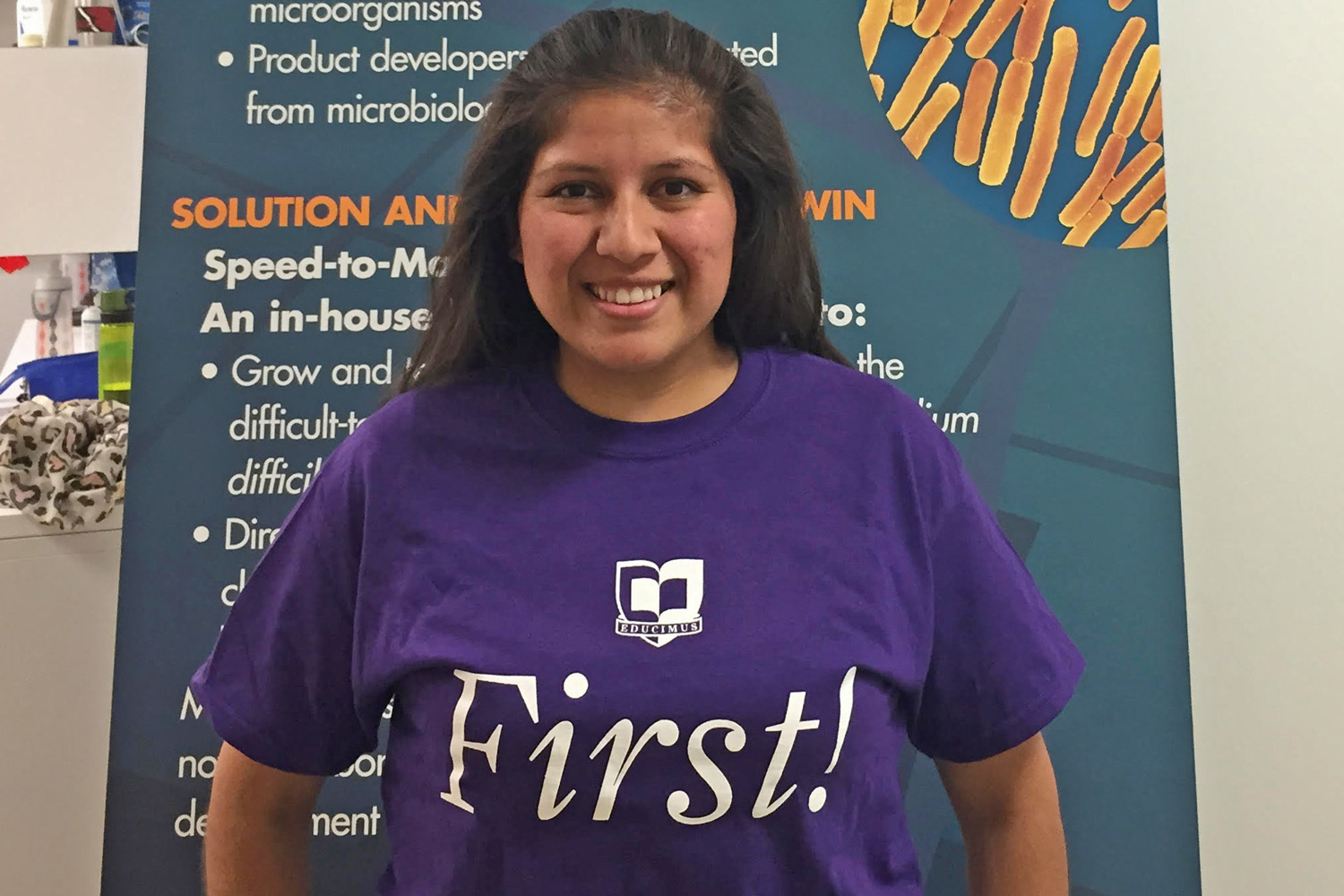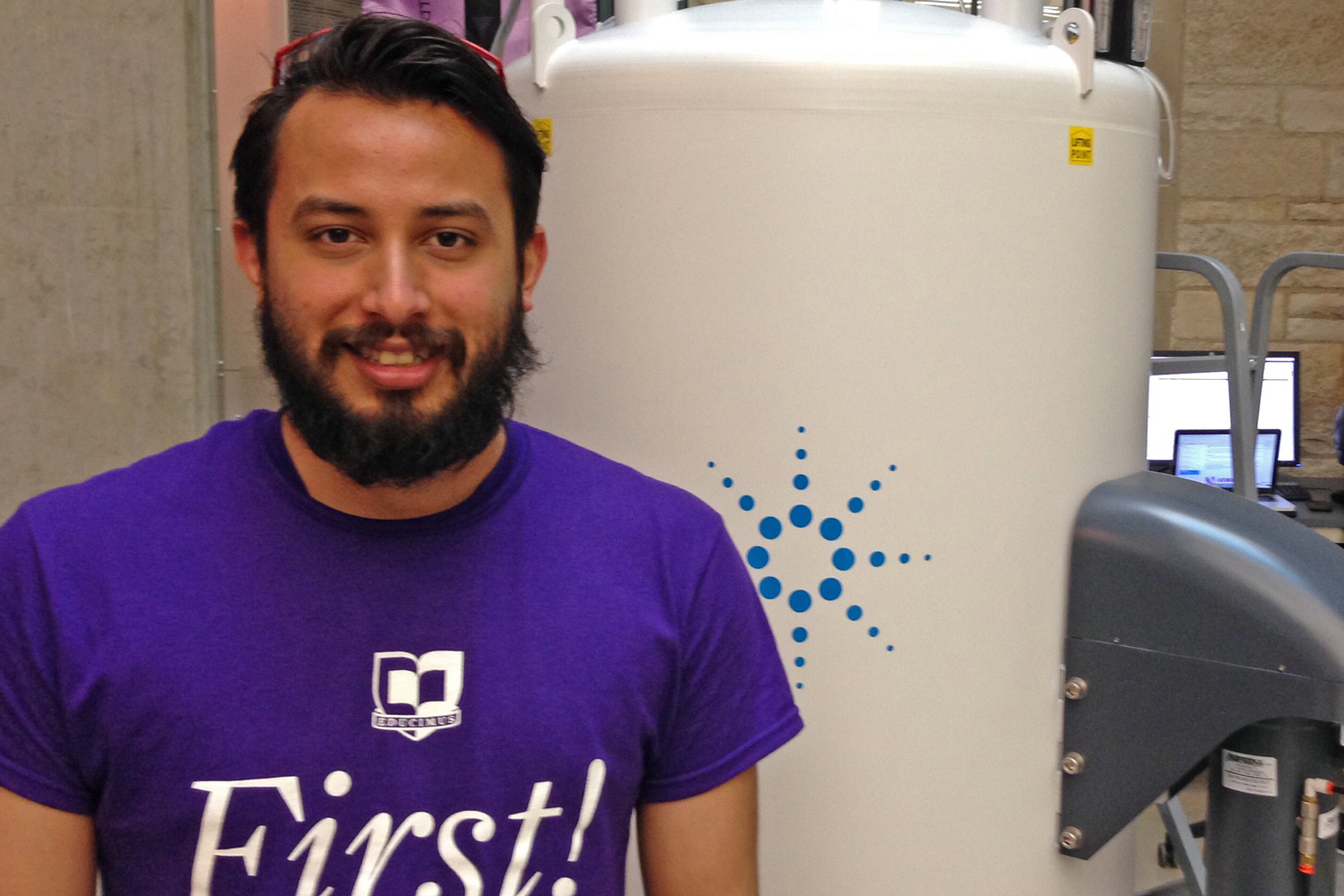First-Gen students rise up

Cornell College sophomore Jose De La Torre became determined to graduate from college when his high school principal led his class in chanting that their goal was “college graduation,” and they would get there by “working hard.” He is the first in his family to attend college.
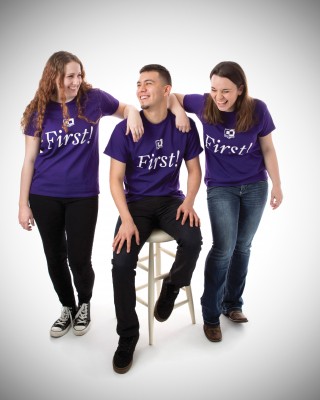
“I want to be a guide for my nephews and niece when it is time for them to attend college. I want to be able to tell them what my experience was like, and help them find the perfect school,” De La Torre said. “I also want to break the cycle in my extended family. No one has graduated from a four-year institution, and I personally feel this cycle must be broken to allow other generations to be inspired and say, ‘If he did it, I can do it.’”
De La Torre is a Chicago native whose parents immigrated to the United States from Mexico in the 1980s. His father works as a waiter at an Italian restaurant and also at a small deli; he has had the same jobs for the past 20 years. De La Torre’s mother was a waitress at a pizzeria until recently, when she fulfilled one of her biggest dreams by opening her own business, Olivia’s Thrift Store.
“My parents work so hard to have me here at Cornell,” De La Torre said. “They work day and night to assure I am getting the education I need to be successful.”
When he visited Cornell, De La Torre liked the small campus and the professors he met, but he had concerns about the challenges of the academic rigor and fitting in with other students. To help first-generation college students like De La Torre, Suzette Astley, professor of psychology, and RJ Holmes-Leopold ’99, director of the Career and Civic Engagement Center, developed the Rise Up program in fall 2014 with a $250,000 grant from the Arthur Vining Davis Foundations.
With the combination of his own drive and hard work and the guidance he receives from Rise Up, De La Torre is building the skills he will need to become an effective community leader. He has declared majors in psychology and international relations, and he is serving on Student Senate, participating in a mentoring program with the local middle school, and exploring graduate and law school options.
“Being a part of Rise Up has made me more aware of opportunities on campus. It has also helped me think about my upcoming summers and how I can strategically plan them so that I can find internships and graduate on time with my two intended majors,” said De La Torre, “Jesse [McCaughey, the Rise Up program assistant] helped me a lot with a potential scholarship I am applying for. He is very supportive of my ideas and my future plans.”
The Rise Up program offers a space for first-generation students to gather in community, assistance for students seeking internships, and workshops on a variety of subjects from career exploration to how to talk to family members about college. Rise Up also connects current students to faculty mentors Greg Cotton, Jen Rouse, Christina Penn-Goetsch, Devan Baty, and Kate Kauper, all of whom are first-generation college graduates.
“What we strive to do in Rise Up is nurture that same ability to persist that served these students so well in high school, and to develop additional skills that will help them surmount any obstacles they experience in college,” said McCaughey. “I love knowing that I am involved in broadening students’ experiences at Cornell by helping them see opportunities that they might have missed otherwise. In our workshops when I overhear students talking about setting their sights higher, I really see the value in Rise Up membership.”
“My parents work so hard to have me here at Cornell. They work day and night to assure I am getting the education I need to be successful.”
Jose De La Torre ’18
As part of the application process for Rise Up, students reflect on their personal strengths. Common themes that emerged include a strong work ethic, an open mind, and a belief that they can overcome obstacles and persevere toward their goals.
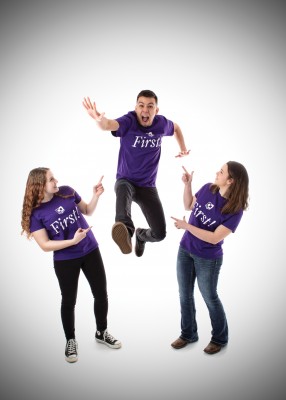
“Because of these strengths, the first-generation students in Rise Up are able to benefit immediately from the additional information and peer and professional support they receive in the program,” Astley said. “And the Rise Up students seem especially grateful for all of the opportunities they have at Cornell and for any assistance they receive along the way. It is a privilege and delight to work with them.”
Elizabeth Flick ’17 of Blossom, Texas, is an active Rise Up member. An English and creative writing and Spanish double major, Flick is an aspiring writer who wants to be a professional translator and write short novels for adults learning Spanish as a second language. This spring she took part in an Alternative Spring Break trip to work with people struggling with poverty in rural Tennessee.
“First generation college students sharing their experiences and supporting one another through the challenges that sometimes seem unique is already attractive,” said Flick, “but Rise Up’s resources and desire to help us with internships and other opportunities makes it stand out from both my prior experiences and my expectations.”
Rachael Campbell ’18 of Colorado Springs, Colorado, joined Rise Up to find community and connect with other students, something, she said, that has been no problem at Cornell. Campbell is double-majoring in art history and psychology and is working toward a career as a museum curator. She also plays for the Cornell tennis team and volunteers at the Mount Vernon Veterinary Clinic.
“Within the first five blocks, I have met many people that I otherwise wouldn’t have, which includes the coordinators who have so far given useful resources and opportunities. The Rise Up speakers have given me good insight into what I will be facing after graduation, as well as ways to better prepare myself for a successful future,” said Campbell.
Cornell College’s efforts with the Rise Up program are part of a growing nationwide endeavor to help more first-generation college students graduate with a four-year degree. According to an article that appeared in TIME in 2012, more than a quarter of low-income, first-generation college students leave after their first year, and 89 percent do not graduate within six years. In response, First Lady Michelle Obama, also a first-generation college graduate, is actively seeking to inspire students all over the United States to take charge of their futures through the Reach Higher initiative. Reflecting on her own experience in an interview on the White House blog, she advises first-generation college students to connect with people and create communities of support—like the students taking part in Cornell College’s own Rise Up program.
“What we strive to do in Rise Up is nurture that same ability to persist that served these students so well in high school, and to develop additional skills that will help them surmount any obstacles they experience in college.”
Jesse McCaughey, Rise Up program assistant
Cornell College has recognized talent and work ethic in first-generation college students for generations through financial support. Students have been given work opportunities on campus to help fund their educations since the early 1900s. President Les Garner spoke to the importance of endowed scholarships for first-generation and low-income students in a 2007 white paper, and first-generation students of today continue to receive scholarships and work-study opportunities that both help fund their education and build their resumes.
The number of first generation college students coming to Cornell has grown in recent years, with some fluctuation, with first-generation students representing 17 percent of the incoming class in the fall of 2000, 25 percent of the incoming class in the fall of 2013, and 15 percent of the incoming class in the fall of 2014.
Students also receive personal guidance from professors and staff, and form life-long relationships with peers. Cornell’s life-changing liberal arts education teaches critical thinking and communication skills, and pushes students to think in terms of the larger world. Perhaps Astley, President Jonathan Brand, and Dean Joe Dieker said it best in a 2014 white paper they co-wrote about the college’s commitment to educating first-generation college students:
“As all Cornellians know, Cornell College is a selective liberal arts college characterized by academic rigor, dedicated faculty, and small class sizes. These attributes make Cornell College an ideal setting in which to improve the success of first-generation college students.”

